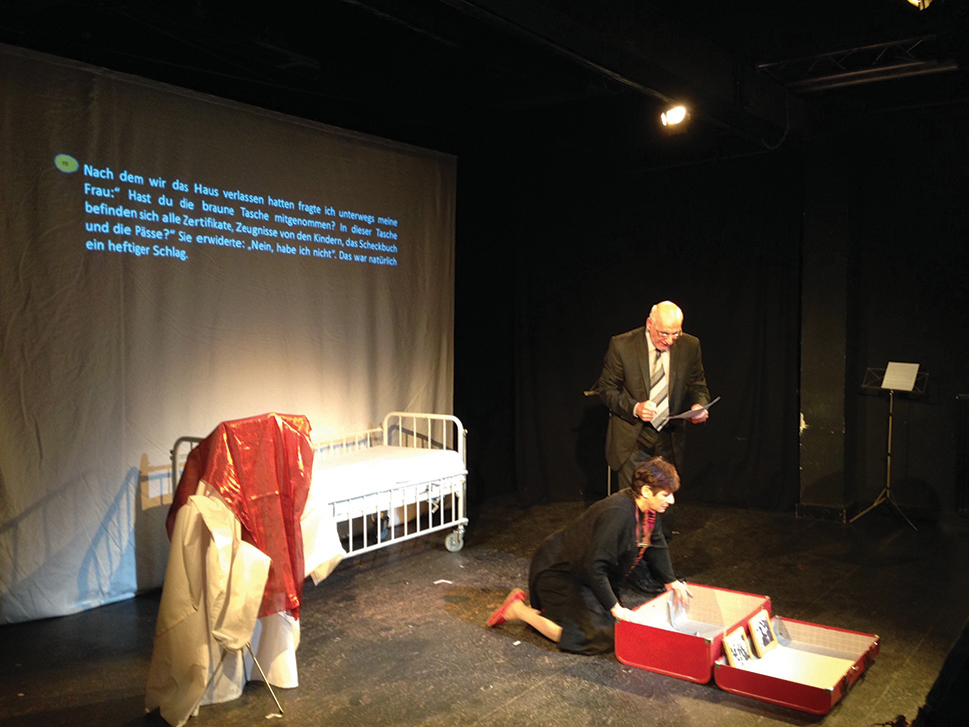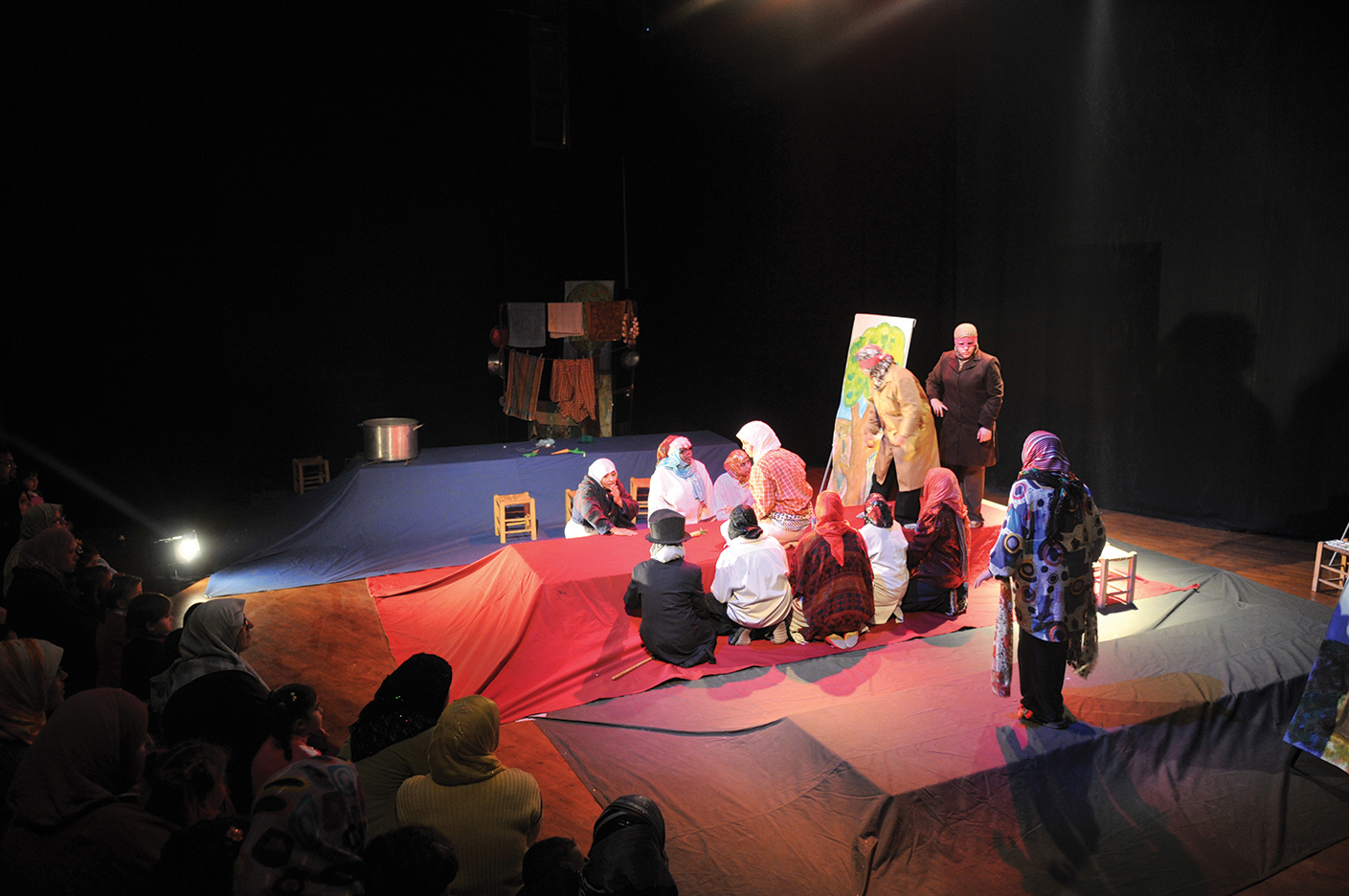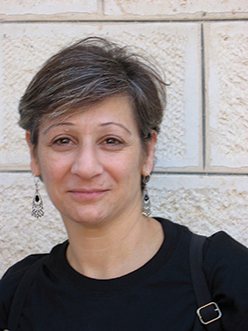Since its inception, Palestinian contemporary theater has been linked to issues and topics related to public concerns, humanity, and land. Its compass has always been directed towards promoting freedom from all forms of oppression, occupation, and persecution. Perhaps this is what has prompted many Palestinian theaters to abandon material temptations in exchange for the ability to maintain firm positions and adhere to national principles.
Culture is the most important entity Palestinians can use as a starting point to reach the world at large. It is, after all, the true lever of public awareness and the main protector of national identity – especially as Palestine is becoming more and more Judaized and every attempt is made at eroding its Palestinian identity. Thus, culture is at the forefront of efforts to protect and strengthen emerging generations, whether they are involved in the generation of cultural acts and artifacts or ‘merely’ their recipients.
Perhaps the awareness of culture’s role as a provider of identity, pride, and steadfastness is what drives the occupation towards stifling the cultural scene – which it attempts through various direct and indirect means: Palestinian theaters and cultural centers are facing many forms of legal, economic, and political harassment, including repeated closures. Frequently, theater teams from the West Bank and Gaza are prevented from reaching different areas, particularly Jerusalem and historical Palestine, where they wish and have been invited to perform. But the determination of the people engaged in theater does not wane nor tire. Their stance and priority remain part of the national liberation project; frequently this aim is their main drive.
Even when the occupation does not interfere directly, it uses its influence (through its sympathizers) on donors, which results in measures such as conditional funding, denying entry to international artists sympathetic to Palestine, as well as other financial and non-financial measures that result in hampering Palestinian artistic activities in general.
In the midst of all this, Palestinian theater, along with all those who are working in it, is taking a stance to defend its very existence and its rights of expression that is rooted in the history and geography of our homeland. Hence, we see that many locally-produced theatrical works revolve around the existential threat facing all Palestinians and their land. Expectedly, such plays frequently pose considerable difficulty in marketing abroad, especially in countries whose theaters are influenced by counter propaganda. However, since its inception in the seventies, the modern Palestinian theater movement has taken upon itself the task of exporting to the world Palestinian art and the Palestinian cause, despite all efforts to limit and subdue this mission.

Among the major challenges facing Palestinian theater is the absence of an effective national strategy to protect, support, and sustain cultural institutions and cultural and artistic activities in general. It can be observed that political and cultural trends and policies change with each new minister of culture, which limits the possibility of constructively accumulating a cultural build-up. The absence of a consistent policy towards culture has furthermore affected the government’s handling of cultural institutions, towards which it simply does not show enough care. Thus, we are losing theaters, cultural institutions, and cinemas such as Cinema Jenin and Ramallah’s Drama Academy. This is the reason behind the financial crisis affecting Ashtar Theater, Khalil Sakakini Cultural Center, and many others. Furthermore, as there is no national strategy towards culture, the private sector in turn tends not to support cultural institutions in general and theater in particular – government incentives for such support could exert a great amount of leverage, as is done in many countries worldwide.
Another critical point is the lack of networking between theaters, cultural centers, and decision-makers, a condition that is mainly due to the absence of a syndicate that ought to represent the cultural movement. The lack of networking limits the possibility of developing constructive mechanisms at the national and governmental levels, fails to encourage school children to attend theater performances because they are not part of the curriculum, or university students from engaging – be it actively or passively – in theater because acting is not considered one of the vital professions in our country. The lack of organization, or of an umbrella association, is what prevents theater from assuming its important role in creating social change among the general public and their decision makers – even though it is a well-known fact that theater is capable of serving as one of the most effective tools in influencing the masses, especially when it is able to simulate reality in a creative and attractive manner.

One should not underestimate the negative role that news and media are able to play in weakening the impact of theater, simply by completely ignoring local theater productions. The Palestinian Broadcasting Corporation, as the main radio and television authority, is responsible for the poor promotion of theatrical works, as it fails to adopt plans that could raise the public’s awareness of the importance of art and theater. It appears as if our radio and television broadcasters prefer to spend – or waste – their money in purchasing weak imported dramas instead of investing in quality Palestinian productions. The almost non-existence of a critical movement that could serve to motivate the public and develop the tools for people working in theater no doubt adds to the woes of Palestinian theater.
It is important to mention that the availability of high-quality dramatic works can contribute to the creation of professional careers by inspiring youth to engage in acting and enticing highschool graduates to become actors and theater graduates.
As if the occupation, the lack of a national strategy, and the lack of adequate funding were not enough, another major challenge for Palestinian theater today is a growing tendency towards the adoption of rigid social and religious ideologies that restrict acceptance of everything new and different. This unfortunate attitude serves as inhibiting factor for creative youth that have invested their efforts in obtaining an education in theater but find no work or outlet for their creativity, and thus sadly are forced to leave the stage for the time being.
So I ask you: Where is the solution? Who is listening to our cry? And where is the sincere will to change the current, gloomy situation of Palestinian theater?


